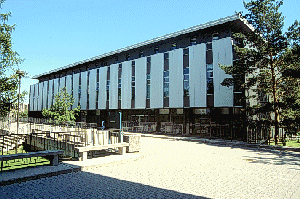PDF
Faith in pluralism : a history of the religious education controversy in Ontarios public schools, 1944-1969 Item Info
- Title:
- Faith in pluralism : a history of the religious education controversy in Ontarios public schools, 1944-1969
- Creator:
- Michel, A. P.
- Date Created:
- 2001
- Degree Awarded:
- Master of Arts
- Subjects:
- education parochial secularization
- Geographical Focus:
- Canada Ontario
- Supporting Materials:
- n/a
- Description:
- This study examines the introduction, persistence and eventual public rejection of Christian education in Ontario’s public schools during the period of 1944-1969. This episode reveals a significant shift in the political and religious culture of Ontario in the two decades after the Second World War. During this time period the traditional British, Protestant, conservative culture of “Old Ontario” gradually gave way to a more pluralistic, liberal culture. The religious education program was introduced into the schools in reaction to these changes. in an effort to bolster a fading worldview, but because the program was so closely tied to a traditional culture which came under increasing criticism in the 1960s, it was swept away as a cultural anachronism. Controversy and public debate arose when the program was introduced in 1944 and again during the carly 1960s. A comparison of the public debates in these two periods provides ample evidence of the significant shift in attitudes which had taken place. The study concludes that in this episode, which at first glance does not appear to fit into most theories of secularization and modernization, the state increased the presence of religion in the public sphere, supposedly taking over the role of churches and teaching the Christian religion as a means to fortify a common political culture. In the turmoil of the Second World War, and in the conservative-modemism of the 1950s, such a program was not objectionable to most members of society, although opposition was strong from religious minorities. When more liberal ideas about individual rights and pluralism began to gain authority in the culture. the previous practices were denounced as indoctrinating, oppressive and segregationist. The program had not changed significantly. nor had the religious demographics of public school attendees. The public controversy and rejection was a symptom of a much deeper cultural change. As democratic citizenship was redefined in liberal terms. Christianity was relegated to the private sphere, losing its privileged status as public religion in a conservative culture.
Source
- Preferred Citation:
- Michel, A. P.. Faith in pluralism : a history of the religious education controversy in Ontarios public schools, 1944-1969. 2001. Carleton University, Master of Arts.
- Reference Link:
- https://cuhistory.github.io/grads/items/hist_182.html
Rights
- Rights:
- Copyright the author, all rights reserved, unless otherwise indicated.

